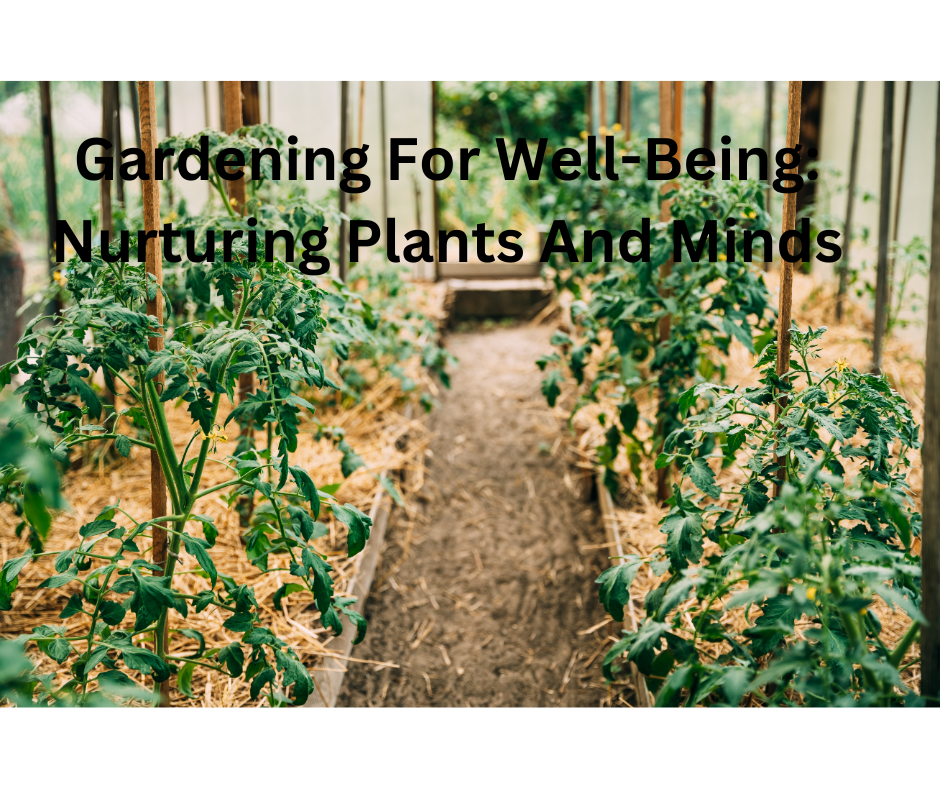
When we think of gardening, we don’t generally consider how it impacts our well-being. We’re thinking of all the yummy fruits and veggies we’ll get to grow and eat or maybe the beautiful spaces we’ll create. Or perhaps it’s the excitement of attracting pollinators and the learning experiences we’ll gain through our successes and failures. But gardening significantly impacts us much deeper, whether we realize it or not.
We know gardening can lead to healthy behavioral practices that positively impact your health and well-being. Being close to nature instills feelings of connectedness and promotes a positive effect, lifting your mood and tranquility.
Spending time outdoors in a relaxed atmosphere can make people more mindful of the present and combat stress. As a matter of fact, several studies have documented that spending time in nature triggers physiological responses that lower stress levels.
The repetitive nature of weeding, planting, and watering can be meditative, giving a sense of calm and help to reduce anxiety. Focusing on tasks allows you to redirect your attention away from stress and worry, providing natural anxiety relief.
Gardening activities also directly reduce other health issues, such as blood pressure. Being outside in the fresh air can lower your blood pressure and positively affect your sense of well-being. Spending time outside on a sunny day can boost your vitamin D exposure, and working with soil activates serotonin, which is great for well-being by boosting mood regulation, and social behavior.
Successfully growing plants or transforming a garden space can lead to a significant increase in self-esteem. Seeing the results of your efforts promotes a more positive self-image and increased confidence.
Activities like joining a community garden provide a safe and relaxed place for social interaction. It brings an opportunity for greater unity and social connections within your community. Coming together to cultivate plants and share in the harvest can significantly reduce feelings of loneliness, contributing to overall well-being.
The physical activities that come with gardening can contribute to your well-being by releasing endorphins, known as “feel-good” hormones. Although not directly, endorphins released during physical activities can indirectly foster an environment favorable to creativity.
Gardening offers an opportunity to express creativity through the design and planning of your garden space. Choosing which plants to grow and arranging them to please the eye or ensure compatibility with surrounding plants can be a joyful and creative process that stimulates the mind.
The sense of achievement from watching a plant grow from a seed or a seedling into a full-grown plant or a blooming flower can provide a deep feeling of satisfaction, and personal growth resulting from your care and effort.
So, this spring, as you delve into your garden to cultivate delicious produce, welcome beneficial pollinators, or acquire new horticultural skills, remember that the rewards for your well-being are quietly at play, nurturing your overall health from behind the scenes.
